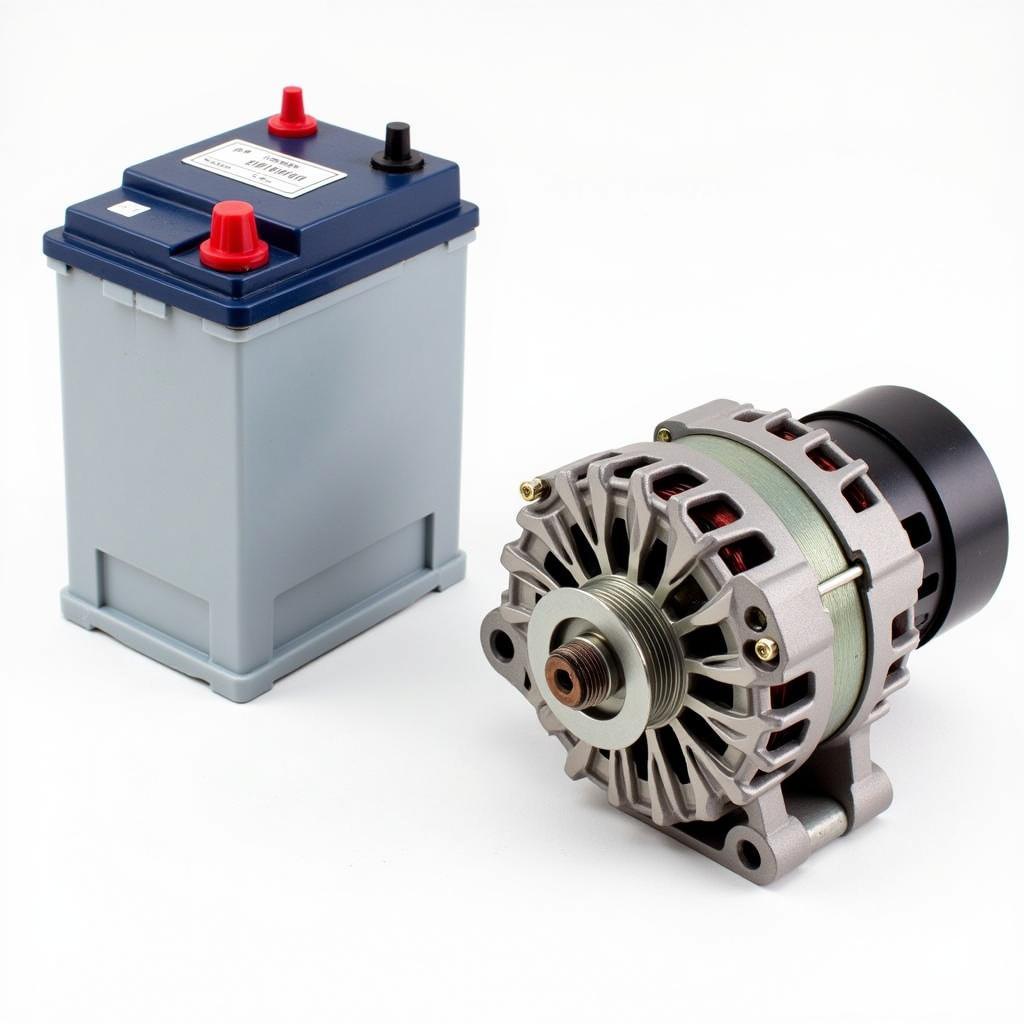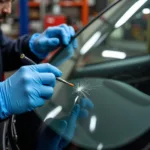Car electricity repair can be daunting. From flickering headlights to a completely dead battery, electrical issues can bring your vehicle to a screeching halt. Understanding the complexities of your car’s electrical system is crucial for both diagnosing problems and finding reliable solutions. This guide will equip you with the knowledge you need to navigate the world of car electrical repair, covering everything from basic troubleshooting to finding the right professional help.
Car electrical systems are incredibly intricate networks, responsible for powering everything from the engine ignition to the entertainment system. A malfunction in any part of this system can lead to a range of problems, impacting both the drivability and safety of your vehicle. It’s crucial to address these issues promptly to prevent further damage and ensure your car remains reliable. After reading this section, you might want to check out more information on auto electrical car repairs.
Understanding Your Car’s Electrical System
The electrical system in your car is a complex network of components working together. It starts with the battery, which stores electrical energy and provides power to the starter motor. The alternator then takes over, generating electricity to keep the battery charged and power various electrical components while the engine is running.
Key Components and Their Functions
- Battery: The powerhouse of the system, storing energy to start the engine and power accessories when the engine is off.
- Alternator: Generates electricity while the engine is running, recharging the battery and powering the electrical system.
- Starter: An electric motor that cranks the engine to start it.
- Wiring: The network of wires that connects all electrical components.
- Fuses: Safety devices that protect the electrical system from overloads.
- Relays: Switches that control the flow of electricity to various components.
- Sensors: Provide information to the car’s computer about various systems.
A faulty alternator can lead to a drained battery and eventually leave you stranded. Similarly, a failing starter motor will prevent your car from starting altogether. Understanding these key components and their functions is the first step towards effective car electricity repair. You can find more helpful details on car electrical problems repair.
Common Car Electrical Problems
Several electrical issues can plague your vehicle. Recognizing the symptoms can help you pinpoint the problem and seek the appropriate repair.
Identifying the Symptoms
- Dimming headlights: Often indicate a failing alternator or a weak battery.
- Slow cranking: Could be a sign of a dying battery or a faulty starter.
- Electrical accessories malfunctioning: Problems with the wiring, fuses, or relays.
- Warning lights on the dashboard: Can indicate various electrical issues depending on the specific light.
- Burning smell: Could be a sign of a short circuit or overloaded wiring.
Knowing how to troubleshoot these common problems can save you time and money. More specific solutions can be found on our dedicated page on electrical repairs to rear defroster grid on cars.
DIY vs. Professional Car Electricity Repair
While some minor electrical repairs can be handled by DIY enthusiasts, complex issues require professional expertise. Knowing when to call a mechanic is crucial to avoid further damage and ensure a proper repair.
When to Call a Professional
- Complex electrical problems: Issues involving the car’s computer system or intricate wiring.
- Lack of experience: If you’re not comfortable working with electricity or car systems.
- Specialized tools required: Some repairs require specialized diagnostic tools that you may not have.
- Safety concerns: Working with car electricity can be dangerous if not done properly.
For those located in Middlesbrough, check out our specific guide for car electrical repairs middlesbrough. A professional mechanic has the experience, knowledge, and tools to diagnose and repair complex electrical issues effectively. They can also identify potential problems before they become major headaches, saving you money in the long run. Don’t hesitate to seek professional help when dealing with car electricity repair. You can also find a useful PDF resource regarding car electrical system repair pdf.
Conclusion
Car electricity repair is a critical aspect of vehicle maintenance. Understanding the intricacies of your car’s electrical system, recognizing common problems, and knowing when to seek professional help are essential for keeping your car running smoothly and safely. By being proactive and informed, you can avoid costly repairs and ensure your vehicle remains reliable for years to come. Don’t let electrical issues leave you stranded; take charge and master the art of car electricity repair.
FAQ
- What are the most common signs of a bad alternator? Dimming headlights, flickering interior lights, and a dead battery are common signs of a failing alternator.
- How often should I replace my car battery? Car batteries typically last 3-5 years, but various factors can affect their lifespan.
- Can I jump-start my car with a dead battery? Yes, but it’s essential to follow the proper procedure to avoid damaging the electrical system.
- What causes a car’s electrical system to short circuit? Damaged wiring, faulty components, or exposure to moisture can cause short circuits.
- How can I prevent car electrical problems? Regular maintenance, including battery checks and inspections of wiring and connections, can help prevent electrical issues.
- What should I do if I smell burning plastic in my car? Immediately pull over and turn off the engine, as this could indicate a dangerous electrical fire.
- How much does it typically cost to repair car electrical problems? The cost varies depending on the specific issue and the labor rates in your area.
Common Car Electrical Repair Scenarios:
- Scenario 1: Car won’t start. Possible causes: Dead battery, faulty starter, or ignition switch problems.
- Scenario 2: Headlights are dim. Possible causes: Failing alternator, loose wiring, or corroded battery terminals.
- Scenario 3: Radio doesn’t work. Possible causes: Blown fuse, wiring issue, or faulty radio unit.
Related Articles and Resources:
- Troubleshooting Car Starting Problems
- Understanding Your Car’s Charging System
- DIY Car Maintenance Tips
Need Help? Contact us via WhatsApp: +1(641)206-8880, or Email: [email protected]. Our 24/7 customer support team is ready to assist you.



